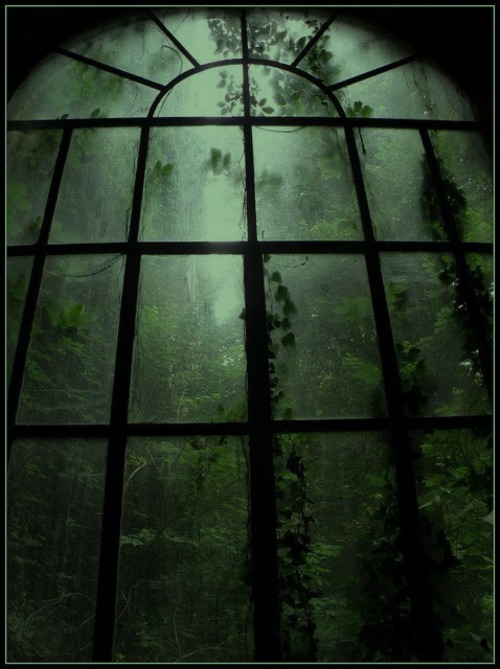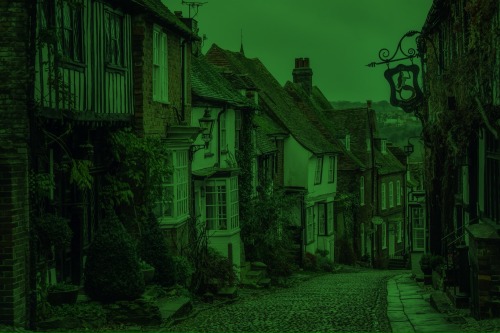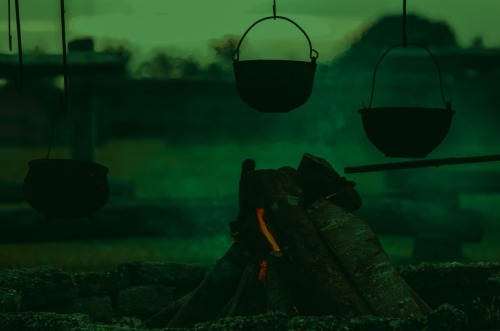Punchy-academic - This Is Really Something

More Posts from Punchy-academic and Others
congrats, once you enter the magpod universe you are now bisexual unless it becomes important somehow.
Okay!!
Three facts about agriculture:
Agriculture in the US makes up over 20 million jobs. I’m not sure about other countries, but I would argue it was that amount or more easily.
From an education standpoint we look at it as Agriculture, Food, and Natural Resources. They are all things that are so interconnected you can’t have them without each other.
The average age of farmers worldwide is 60 years old- in the U.S its 55. This could have major implications for food security in the future unless a whole lot of people worldwide decide to get involved in growing food.
Plus a bonus fact:
There are +9 million dairy cattle in the US. Each can produce 6-7 gallons of milk in a day.
There’s a disturbing lack of agriculture content here.
Some fiction podcasts I have listened to and enjoyed:
- The Magnus Archives (they really started it all for me)
- The Silt Verses(the loves of my life, I could ramble all day about my undying love for this pod)
- Wolf 359 (platonic love to the max my dudes)
- Midnight Burger
- The White Vault (🦷)
- Hello from the Hallowoods
- Secret of St. Kilda (Maebh de Brun the woman you are)
- VAST Horizon
- Fathom/Derelict
- The Unpredicted Party
- Trice forgotten
- the No Sleep Podcast
- Old Gods of Appalachia
- Tower 4
- Darkest Night (I’ve never been so simultaneously horrified and also unable to stop listening)
- Borrasca (a classic No Sleep Reddit post with Cole Sprouse as the mc?!?)
- Red Valley
- Bridgewater
Short cottagecore asks!
🏡: are you a forest, ocean, farm or mountain cottage dweller? (Or other)
🍁: what’s your favorite season?
🥐: what was the best food you have ever made yourself?
🍓: do you garden? If so, what’s the most impressive thing you’ve grown?
🌼: favorite wildflower and/or herb?
💐: what is your idea of a perfect date?
🍪: what is your favorite spice to cook/bake with?
🌱: where do you feel the coziest?
🌲: if you could make your life more cottage-y by doing one thing, what would you do?
🍄: do you forage?
☁️: what weather inspires you the most? What does it inspire you to do?
🐝: what do you find yourself daydreaming about?
🌻: what is the nicest thing you have ever done for yourself?
🧺: if you were to pack a picnic basket, what would you include in it?
🍵: yummiest warm drink for cold cottage nights?
🐌: do you have any cores outside cottagecore?
"Do you ever dream of land?" The whale asks the tuna.
"No." Says the tuna, "Do you?"
"I have never seen it." Says the whale, "but deep in my body, I remember it."
"Why do you care," says the tuna, "if you will never see it."
"There are bones in my body built to walk through the forests and the mountains." Says the whale.
"They will disappear." Says the tuna, "one day, your body will forget the forests and the mountains."
"Maybe I don't want to forget," Says the whale, "The forests were once my home."
"I have seen the forests." Whispers the salmon, almost to itself.
"Tell me what you have seen," says the whale.
"The forests spawned me." Says the salmon. "They sent me to the ocean to grow. When I am fat with the bounty of the ocean, I will bring it home."
"Why would the forests seek the bounty of the oceans?" Asks the whale. "They have bounty of their own."
"You forget," says the salmon, "That the oceans were once their home."
Satellite Data in Ag-tion: From Space to Your Plate
As Earth’s climate changes, some places are drying out and others are getting wetter, including the land that produces the food we eat. Farmers have to figure out how to adapt to changing climate conditions.

Our fleet of satellites has been watching over Earth for more than half a century. Some, like our joint Landsat mission with the U.S. Geological Survey (USGS), collect valuable data about the crops that make up our food supply and the water it takes to grow them.

Combining this wealth of satellite data with observations on the ground allows us to track how crop production changes over the years.
For example, this map shows how croplands have changed over the years to feed a growing population. The Agriculture Department (USDA) has used Landsat data since 2008 to track crops growing in the continental United States.

Agricultural scientists can even focus in on data for individual crops like corn, wheat and soybeans. They can look closely at regional crops, like citrus, that grow in only a few areas.

This nationwide view — provided by Landsat satellites orbiting 438 miles above Earth — is important to track the nation’s food supply. But with data from other satellites, like our ECOSTRESS instrument and ESA’s (the European Space Agency) Sentinel-2, agricultural scientists can monitor how healthy crops are in real time and predict when they’ll be ready to harvest.
In this false-color image of California farmland, red areas peak early in the season, whereas blue areas peak late. This information helps farmers watch over the plants in their fields, predict when they’ll be ready to harvest, and maximize crop production.

But while growing more and more crops sounds good, there can be challenges, like water. Especially when there’s not enough of it.
During California’s recent drought, just over 1 million acres of fertile farmland (shown in green) were fallow, or unused (red) in 2015. That’s nearly double the number of unused fields in 2011, the last year with normal rainfall before the drought.

Irrigating acres and acres of farmland takes lots of water. With remote sensing, scientists can track how irrigation fluctuates with climate change, new water management policies, or new technologies. Research like this helps farmers grow the most crops with the least amount of water.

As our climate changes, it’s more important than ever for farmers to have the knowledge they need to grow crops in a warming world. The data collected by our Earth-observing satellites help farmers learn about the planet that sustains us — and make better decisions about how to cultivate it.
Make sure to follow us on Tumblr for your regular dose of space: http://nasa.tumblr.com
I heard vine compilations were a thing
YOU’VE HEARD OF DARK ACADEMIA/COTTAGECORE
now get ready for
DARK NATURALISM
- studying by the open window of ur house, feeling the breeze
- reading murder mysteries in a field of green green grass
- mysterious forces in the woods
- ignoring mysterious forces in the woods bc you have a midterm tomorrow
- following mysterious forces at 3 am because you’re done revising but couldn’t sleep anyways from all the tea
- tights and light plaid skirts;reds and maroons and whites;button downs;dresses of all kinds
-trousers either ankle length or rolled to be so;lightweight jackets;linen
i’m not explaining this well hehejs







Reblog If You Can Take Off Your Bra Without Taking Your Shirt Off.
reblog if your name isn't Amanda.
2,121,566 people are not Amanda and counting!
We’ll find you Amanda.
-
 lemonyscented reblogged this · 1 week ago
lemonyscented reblogged this · 1 week ago -
 justjams7787 liked this · 1 week ago
justjams7787 liked this · 1 week ago -
 amothmanslife reblogged this · 1 week ago
amothmanslife reblogged this · 1 week ago -
 patchypines liked this · 1 week ago
patchypines liked this · 1 week ago -
 little-centaur reblogged this · 1 week ago
little-centaur reblogged this · 1 week ago -
 willisthebigshitter69 liked this · 1 week ago
willisthebigshitter69 liked this · 1 week ago -
 mcr-sharpest-lives liked this · 1 week ago
mcr-sharpest-lives liked this · 1 week ago -
 writingandwritten reblogged this · 1 week ago
writingandwritten reblogged this · 1 week ago -
 writingandwritten liked this · 1 week ago
writingandwritten liked this · 1 week ago -
 the-turtle-fan reblogged this · 1 week ago
the-turtle-fan reblogged this · 1 week ago -
 the-turtle-fan liked this · 1 week ago
the-turtle-fan liked this · 1 week ago -
 tehcoah reblogged this · 1 week ago
tehcoah reblogged this · 1 week ago -
 1-upbro liked this · 1 week ago
1-upbro liked this · 1 week ago -
 istps liked this · 1 week ago
istps liked this · 1 week ago -
 tentakilly liked this · 1 week ago
tentakilly liked this · 1 week ago -
 burningclocks reblogged this · 1 week ago
burningclocks reblogged this · 1 week ago -
 quinnn-n liked this · 1 week ago
quinnn-n liked this · 1 week ago -
 mizzle-moths reblogged this · 1 week ago
mizzle-moths reblogged this · 1 week ago -
 mizzle-moths liked this · 1 week ago
mizzle-moths liked this · 1 week ago -
 acad3miawhore liked this · 1 week ago
acad3miawhore liked this · 1 week ago -
 inkyarachne liked this · 1 week ago
inkyarachne liked this · 1 week ago -
 kyathedino liked this · 1 week ago
kyathedino liked this · 1 week ago -
 nerddisasterbi reblogged this · 1 week ago
nerddisasterbi reblogged this · 1 week ago -
 arandomspacedino liked this · 1 week ago
arandomspacedino liked this · 1 week ago -
 ace-and-the-rpg-horrors reblogged this · 1 week ago
ace-and-the-rpg-horrors reblogged this · 1 week ago -
 ace-and-the-rpg-horrors liked this · 1 week ago
ace-and-the-rpg-horrors liked this · 1 week ago -
 m1sf1tb1scu1t liked this · 1 week ago
m1sf1tb1scu1t liked this · 1 week ago -
 typingwithmyhandstied reblogged this · 1 week ago
typingwithmyhandstied reblogged this · 1 week ago -
 typingwithmyhandstied liked this · 1 week ago
typingwithmyhandstied liked this · 1 week ago -
 idontdrinkgatorade reblogged this · 1 week ago
idontdrinkgatorade reblogged this · 1 week ago -
 ikiiky reblogged this · 1 week ago
ikiiky reblogged this · 1 week ago -
 ikiiky liked this · 1 week ago
ikiiky liked this · 1 week ago -
 atsecretgardensinmymind reblogged this · 1 week ago
atsecretgardensinmymind reblogged this · 1 week ago -
 atsecretgardensinmymind liked this · 1 week ago
atsecretgardensinmymind liked this · 1 week ago -
 loulooser liked this · 1 week ago
loulooser liked this · 1 week ago -
 shelteringyourdna reblogged this · 1 week ago
shelteringyourdna reblogged this · 1 week ago -
 shelteringyourdna liked this · 1 week ago
shelteringyourdna liked this · 1 week ago -
 silverpaintedstars reblogged this · 1 week ago
silverpaintedstars reblogged this · 1 week ago -
 camelspit reblogged this · 1 week ago
camelspit reblogged this · 1 week ago -
 indigothemuse liked this · 1 week ago
indigothemuse liked this · 1 week ago -
 indigothemuse reblogged this · 1 week ago
indigothemuse reblogged this · 1 week ago -
 jamiegeode reblogged this · 1 week ago
jamiegeode reblogged this · 1 week ago -
 jamiegeode liked this · 1 week ago
jamiegeode liked this · 1 week ago -
 the-one-and-only-aroace reblogged this · 1 week ago
the-one-and-only-aroace reblogged this · 1 week ago -
 the-one-and-only-aroace liked this · 1 week ago
the-one-and-only-aroace liked this · 1 week ago -
 justalunaticfangirl reblogged this · 1 week ago
justalunaticfangirl reblogged this · 1 week ago -
 absolutely-existing reblogged this · 1 week ago
absolutely-existing reblogged this · 1 week ago

Bad Writer. Occasional Artist. Big fan of agriculture.
152 posts